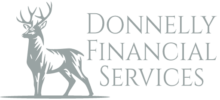Whether you’re already working with a financial planner or about to begin your search, there are a couple of questions that can quickly help determine whether the advisor sitting across from you is a good fit or not. Asking a few of these uncommon questions can essentially serve as a “cheat code” in your objective of finding your ideal advisor. A decision that most of us would prefer to only make once.
Start With The Basics
In today’s highly competitive world of wealth management, there are certain baseline standards that should be considered non-negotiable for everyone. Before getting into the cheat code questions, it’s always important to start with some of the basics. Partly because they tend to be your best chance of quickly weeding out an advisor that won’t be a good fit.
I encourage you to focus your initial questions around the advisor’s expertise and fee structure. For example, an advisor with a financial designation (I.e. CFP, CPA, CFA) signals that they have sought out, and hold an extensive knowledge in a specific area of financial planning. Higher barriers to entry are a good thing in finding your ideal advisor. Next, inquire about their fee structure. Asset-based fees keep the advisor’s incentives aligned with your own. Whereas, commission-based fees can sometimes lead to advisors pushing certain commissionable products over others. If the advisor can pass the basic smell test, it’s time to work in some cheat code questions.

How Many Clients Do You Have?
This first question is meant to provide you with insight into how much time your advisor will actually spend monitoring your financial well-being on an ongoing basis. Financial advisors don’t have any more time in a work week than you do. So, understanding how many client households the advisor works with should give you a rather poignant idea of how many hours per week (or per month) that advisor will be able to spend improving your plan. The number of hours a competent advisor spends analyzing your unique financial situation directly translates to the amount of value they will bring to your relationship – Less hours, less value.
I began my career at a large bank in the wealth management division where the typical advisor had anywhere from 80 to 150 client households. The advisors that I worked with there were fantastic, but the most common strain among them was too many clients and not enough time. This phenomenon tends to be the result of companies pushing for constant growth, and business expansion. When choosing your ideal advisor, do the math. 100+ clients divided by a 40 hour work week doesn’t leave a lot of time for individualized client attention.
What's Your Niche?
What’s the saying? Jack of all trades, and master of none. The vast differences in each individual’s financial situation naturally dictates that the best advisors specialize in a specific client type. In doing so, the advisor is able to build a deep expertise in the financial planning strategies and regulations most relevant to their specific client base. In other words, they’re able to bring the maximum amount of value to clients within their niche, and only within their niche.
Your ideal advisor should work with clients who look very similar to you. A good advisor should be able to provide a reasonably specific response to who they work with, and why. Some of the best advice I received as a financial planner was to build around a niche. Good advisors are not meant to work with everyone who walks through their doors, and the best advisors will tell you if they don’t think they’re right for you. Finding your ideal advisor means finding an advisor that describes someone like you as their niche.

How Are You Going To Help Me?
This is by far the most obvious, yet underutilized, cheat code question you should have in your repertoire. Assuming that you’ve shared a little about yourself and your financial situation, the advisor should be able to provide some ideas, in real-time, around how they would provide you value. Throughout their response make sure that they are presenting you with strategies in a way that you can understand. Your ideal advisor should be able to take advanced planning concepts, and communicate them in a way you understand.
Another key element of this response should be a fairly specific overview of what the first few months of your relationship will look like. If you’re meeting with a financial advisor there’s probably a pretty compelling reason for you being there. Therefore, if the advisor understands your financial priorities, they should describe how they’re going to help you address those priorities in the first few months of working with them.
Remember, a financial advisor is meant to be a trusted partner who understands your unique aspirations and priorities. A simple google search will show that there is no shortage of financial advisors in today’s landscape. However, as discussed, there’s a wide spectrum of expertise and style among advisors, and only a small handful will be a good fit for you. In order to find your ideal advisor it will very likely come down to asking the right questions, and getting the right responses.


